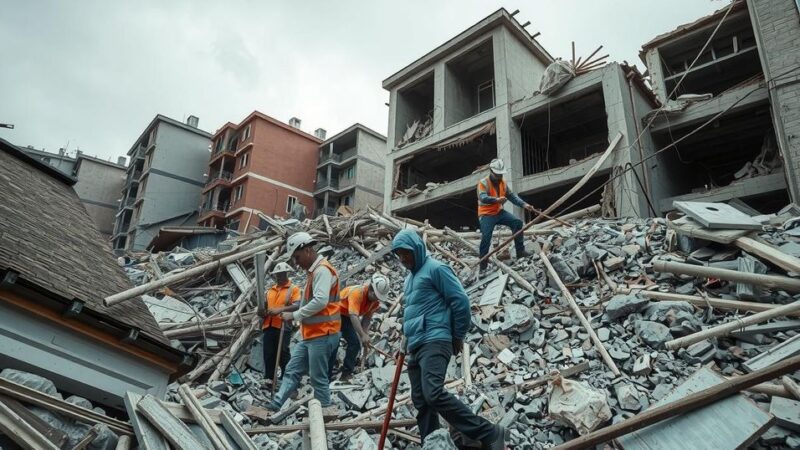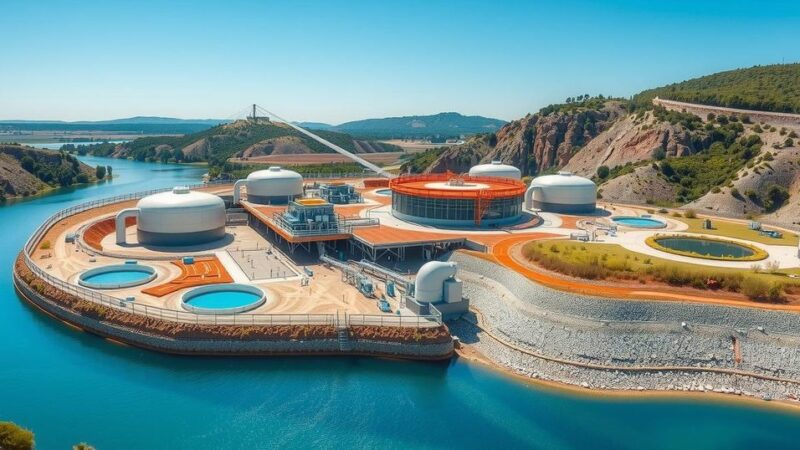The melting glaciers of the Rwenzori Mountains threaten local Ugandan communities by increasing flooding and landslides. Research teams and citizen scientists aim to develop monitoring systems to predict environmental changes. Traditional ecological knowledge is being integrated into modern practices to promote sustainability and cultural preservation. The future of these communities heavily relies on adapting to the adverse effects of climate change.
This article highlights the urgent situation surrounding the melting glaciers in the Rwenzori Mountains of Uganda, a crucial water source for millions. As these glaciers recede, local communities are increasingly vulnerable to environmental upheaval, including devastating floods and landslides. Scientists, led by Dr. John Sekajugo and Professor Matthieu Kervyn, are working with locals to create monitoring systems aimed at predicting flooding and enhancing community resilience through the involvement of citizen scientists.
Notably, the Rwenzori glaciers, which peaked at 7.5 square kilometers in 1906, are now reduced to less than one square kilometer. The melting ice influences vital hydrological cycles and amplifies the risk of extreme weather events. The surrounding ecosystems are also threatened by deforestation and agricultural practices, further exacerbating the communities’ plight.
Traditional ecological knowledge among local groups, like the Bakonzo and Batoro, highlights a historical understanding of the mountains as sacred spaces that must be respected. Efforts are being made to restore indigenous practices that foster soil conservation, including the replanting of indigenous trees and the establishment of natural buffer zones. Through grassroots initiatives, local farmers are learning to adapt and mitigate the effects of climate change while conserving their cultural heritage.
The Rwenzori glaciers represent not only a vital water source for millions but also a grave environmental and cultural challenge. With glaciers melting at an alarming rate, local communities face increased flooding and landslides, threatening their livelihoods and heritage. Initiatives that incorporate traditional ecological knowledge alongside modern science could potentially mitigate these impacts, emphasizing the need for sustainable practices to protect both the environment and the local culture. In conclusion, a collaborative approach is essential for safeguarding the future of this unique region.
Original Source: www.telegraph.co.uk






